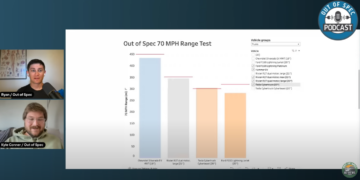WASHINGTON — The U.S. Environmental Protection Agency (EPA) announced yesterday that it will evaluate whether emissions from piston-engine aircraft operating on leaded fuel contribute to air pollution that endangers public health and welfare. The agency plans to issue a proposal for public review and comment in 2022 and take final action in 2023.
“Protecting children’s health and reducing lead exposure are interlocking priorities at the core of EPA’s agenda,” said EPA Administrator Michael S. Regan. “EPA has been investigating the air quality impact of lead emissions from piston-engine aircraft near airports for years, and now we’re going to apply that information to determine whether this pollution endangers human health and welfare.”
While levels of airborne lead in the United States have declined 99 percent since 1980, piston-engine aircraft that operate on leaded fuel are the largest remaining source of lead emissions into the air.
Lead exposure can come from multiple sources, including leaded paint, contaminated soil, industrial emissions from battery recycling or metals processing, and the combustion of fuel or waste containing lead. Children’s exposure to lead can cause irreversible and life-long health effects. No safe blood lead level in children has been identified. Even low levels of lead in blood have been shown to affect IQ, ability to pay attention, and academic achievement. In adults, health impacts from lead exposure can include cardiovascular effects, increased blood pressure and incidence of hypertension, decreased kidney function, and reproductive issues.
Under the Clean Air Act, EPA reviews information on air pollutants and sources of air pollution to determine whether they threaten human health or welfare. This is referred to as an “endangerment finding.” EPA currently plans to issue a proposed endangerment finding for piston-engine aircraft that run on leaded fuel in 2022 for public review and comment. After evaluating comments on the proposal, we plan to issue any final endangerment finding in 2023.
Yesterday’s action responds to petitions from Alaska Community Action on Toxics, Center for Environmental Health, Friends of the Earth, Montgomery-Gibbs Environmental Coalition, Oregon Aviation Watch, the County of Santa Clara, and the Town of Middleton, WI.
More information on the petition response and EPA’s activities on lead emissions from piston-engine aircraft can be found here: https://www.epa.gov/regulations-emissions-vehicles-and-engines/petitions-and-epa-response-memorandums-related-lead
Originally published by the U.S. EPA.
Featured photo by Chait Goli from Pexels.
Appreciate CleanTechnica’s originality? Consider becoming a CleanTechnica Member, Supporter, Technician, or Ambassador — or a patron on Patreon.

- 2022
- Act
- Action
- activities
- Advertise
- aircraft
- Airports
- announced
- aviation
- battery
- blood
- Cause
- Children
- cleantech
- Cleantech Talk
- comments
- community
- county
- Emissions
- environmental
- Environmental Protection Agency
- found
- Fuel
- function
- going
- Guest
- Health
- here
- HTTPS
- Hypertension
- Impact
- Including
- increased
- industrial
- information
- issues
- IT
- lead
- Level
- levels
- Near
- operating
- Oregon
- paint
- Patreon
- Pay
- podcast
- pressure
- proposal
- protection
- public
- public health
- quality
- recycling
- response
- review
- Reviews
- Run
- safe
- States
- Talk
- u.s.
- United
- United States
- us
- Watch
- Welfare
- years








